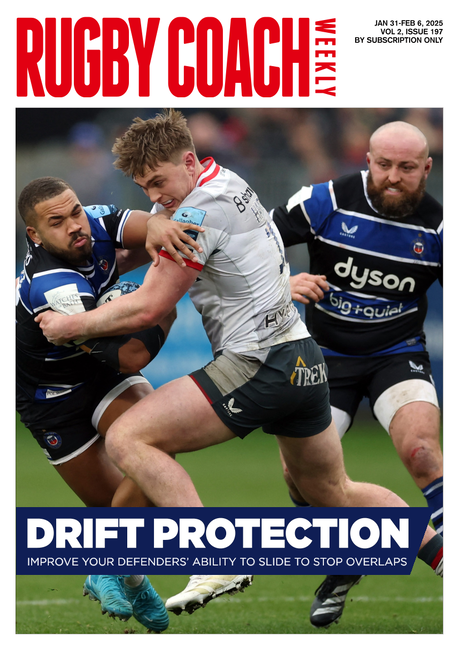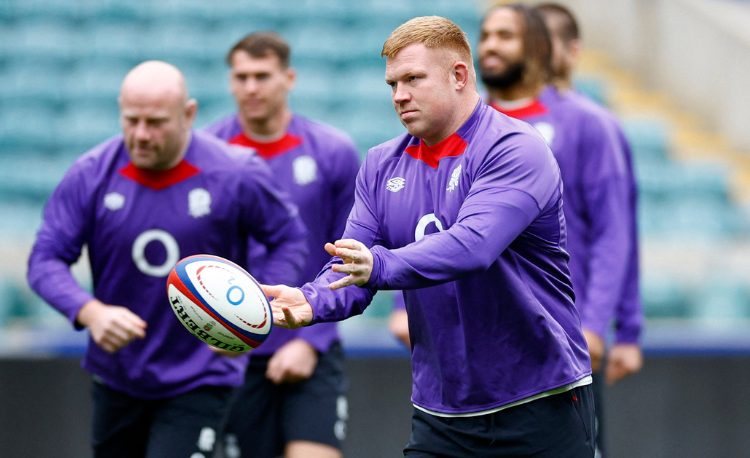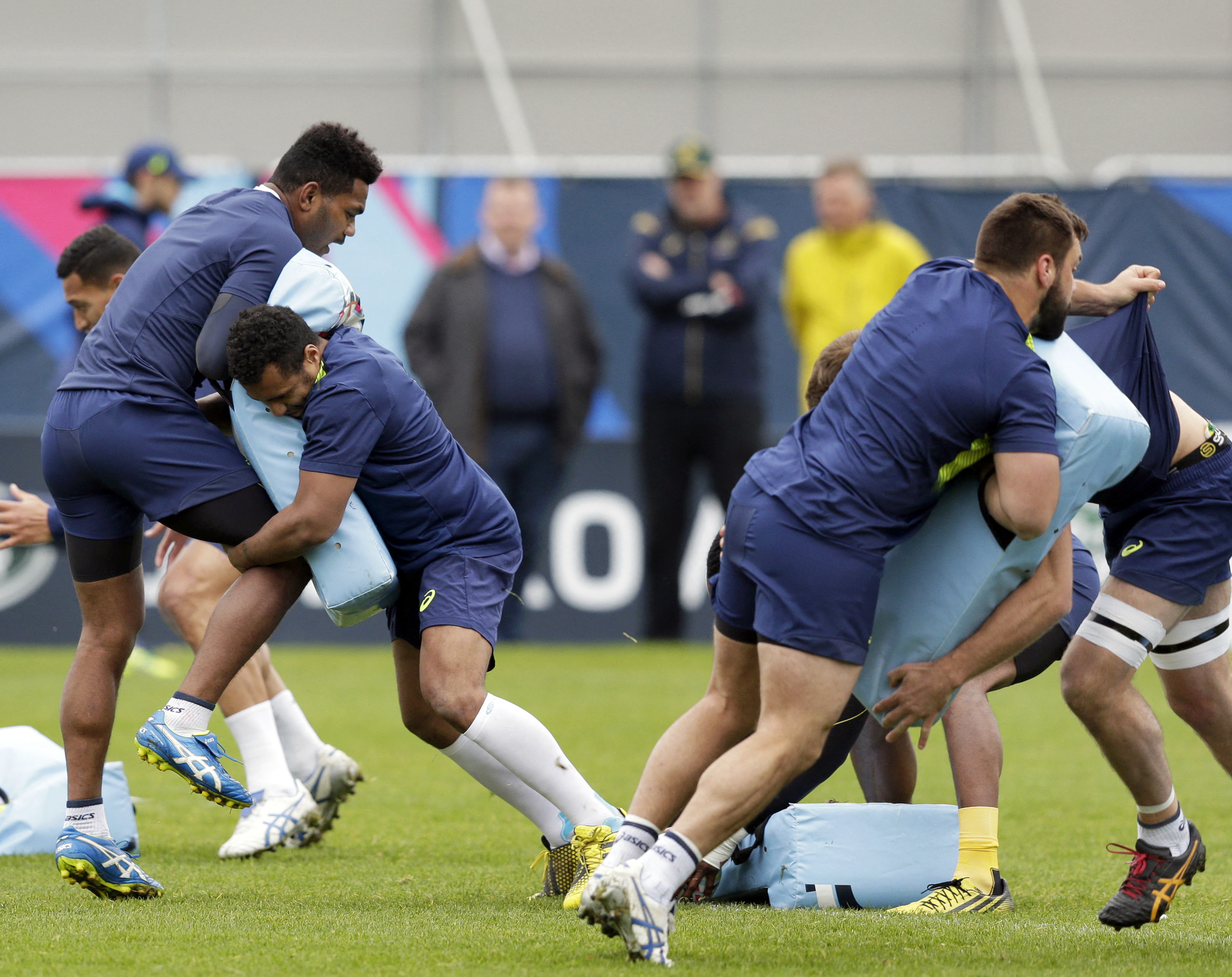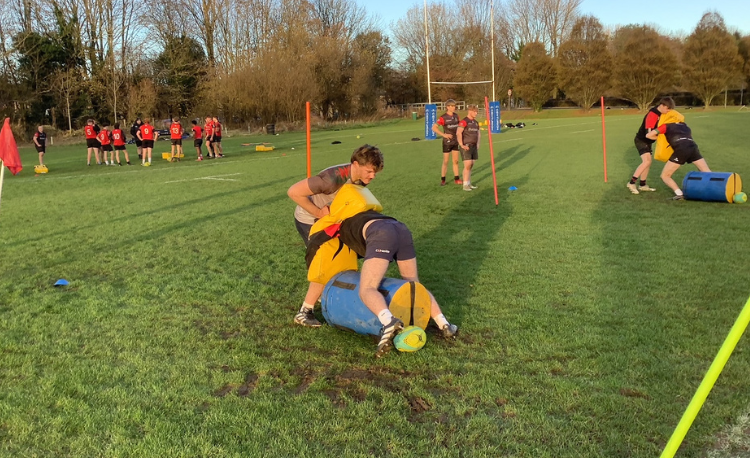Reduce mistakes and improve performance
Unforced errors ruin continuity, cost ground and ultimately lose you matches. What should your minimum expectations be for players? asks DAN COTTRELL.
No matter how developed your training and game plan becomes, it is all for nothing unless your players can achieve some minimum standards of play.
But there is a difference between an error and a mistake, which helps us define the proper expectations for performance.
Errors are avoidable because the player knows what to do - mistakes occur because a player has pushed themselves or faces a situation out of their control.
We can say to the players that an error is unforced. You, with the players’ consent, set out what might be regarded as errors.
Here’s an example checklist from the Swiss Under 20 team:
- You are an actor, not a spectator. No player should be walking anywhere
- The non-carrying arm goes into contact first
- Run straight and fix a defender. That means attack their inside shoulder
- In the tackle, put your leading foot as close as possible to the target: same shoulder, same foot
- You are always lower than your opposite number in the contact
- Don’t make the tackle easy; use footwork. Run at doors, not walls
- In a maul, move the ball to the back of the maul quickly
- Get beyond the contact. Visualise the defender 2m back
- Accelerate onto the ball
- When going to ground, ’score a try first’ (ball under chest), then get into position to offer the ball to our support. This avoids easy turnover ball
- When in doubt, run straight and stay on your feet
- In defence, know where your opposite number is. Don’t just look at where the ball is
- Always be ready to take the ball
- Communicate, communicate, communicate - and do it intelligently
- Playing rugby is about attitude. Be positive
Practical applications
The error list should grow as the season grows. Players should set their own standards, if possible, and you should be there to help them reduce that error count.
Most importantly, try to make the list positive - what players should do, rather than not do.
For example, it is fine to say: “Don’t make the tackle easy." That’s an explanation. The positive statement is to say: “Use footwork. Run at doors, not walls.”
The list should turn into “do this”, and if the players find they can’t, then they will seek ways to improve.
That is where you come in. You can continually design activities and games to develop skills under pressure. These are the times they can make mistakes, because they are learning.
Self-correction important
Don’t become a coach who moans about your error count. Put the burden on the players to understand where they are going wrong. To do that, they must know why the skill is important and how to execute that skill.
In an exercise, check for understanding through questioning and testing under pressure. This pressure comes from less time, space and opposition to perform and from fatigue.
Make sure a minimum standard has been tested under all these before you put it onto the list.
With additional contributions from former Swiss U20 national team coach Andrew Mackenzie.
Related Files
Newsletter Sign Up
Coaches Testimonials

Gerald Kearney, Downtown Las Vegas Soccer Club

Paul Butler, Florida, USA

Rick Shields, Springboro, USA

Tony Green, Pierrefonds Titans, Quebec, Canada
Subscribe Today
Be a more effective, more successful rugby coach
In a recent survey 89% of subscribers said Rugby Coach Weekly makes them more confident, 91% said Rugby Coach Weekly makes them a more effective coach and 93% said Rugby Coach Weekly makes them more inspired.
Get Weekly Inspiration
All the latest techniques and approaches
Rugby Coach Weekly offers proven and easy to use rugby drills, coaching sessions, practice plans, small-sided games, warm-ups, training tips and advice.
We've been at the cutting edge of rugby coaching since we launched in 2005, creating resources for the grassroots youth coach, following best practice from around the world and insights from the professional game.














